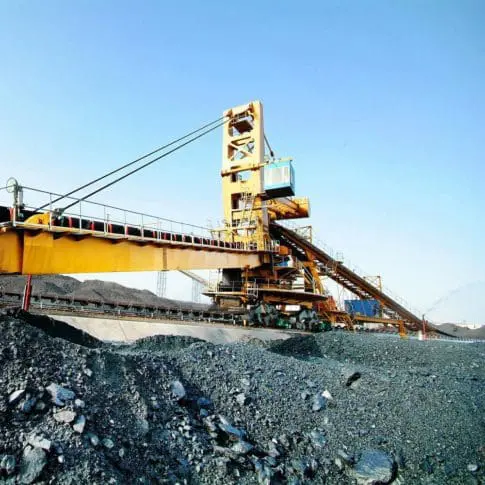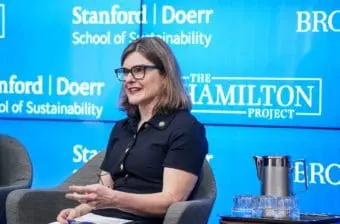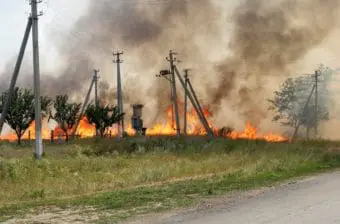Nearly half of coal produced in the United States is mined from federal government lands. The federal government therefore has an unusual degree of control over the domestic production and consumption of this fossil fuel. Given that the use of federal coal generates 13 percent of U.S. energy-related carbon dioxide (CO2) emissions, federal coal policy also has important climate change implications. In recent years, both Democratic and Republican administrations have made efforts to mitigate U.S. CO2 emissions by reducing use of fossil fuels through a variety of programs. However, federal coal policy has yet to reflect these efforts.
In a new paper from The Hamilton Project and the Energy Policy Institute at the University of Chicago, Professors Kenneth T. Gillingham (of Yale) and James H. Stock (of Harvard) propose reforms to the federal minerals leasing program that address the negative climate effects associated with coal mining in an efficient manner that benefits the taxpayer. Specifically, they propose applying a royalty adder of 20 percent of the social cost of carbon to new and renewed federal coal leases in order to reduce but not eliminate federal coal production, thereby reducing total power sector CO2 emissions. The authors project that an additional $3 billion annually would be collected, which they would allocate to programs that support residents of coal communities in transition.
Aligning U.S. Federal Coal Leasing and Climate Policy
Despite growing public attention to the climate consequences of fossil fuel extraction, U.S. climate policy so far has not extended to the government’s role as a major source of fossil fuels. According to the authors, it will be important to implement upstream policies like federal coal royalties that work alongside downstream policies like the Clean Power Plan to achieve broader climate policy goals.
Some royalties, assessed as a percent of the selling price of the fuel, are already collected on federal coal production. In fiscal year 2012, nearly $800 million was raised. These revenues are split evenly between the federal government and the state where the lease is located.
However, current royalties are much less than would be required to account for the climate damages from use of coal. In formulating their proposal, Gillingham and Stock consider a number of factors including the social cost of carbon, the interaction of the royalty adder with other climate policies like the Clean Power Plan, and the potential for substitution of federal and nonfederal coal production. In part because federal coal constitutes such a large fraction of total U.S. coal consumption and transportation costs are high, the extent of substitution of nonfederal for federal coal is expected to be limited.
Proposed Reforms
The authors conclude that reforms of federal coal leasing policy could help achieve important climate goals while benefiting residents of coal communities and retaining use of the most valuable federal coal resources. Gillingham and Stock propose a two-step approach:
- Using authority provided in the Mineral Leasing Act of 1920 (as amended), the Secretary of the Interior would place a royalty adder on federal coal equal to 20 percent of estimated climate damages. This royalty adder will apply to all new leases and lease renewals.
- Congress would enact legislation authorizing the use of the federal portion of additional revenues for transitional assistance to communities reliant on nonfederal coal mining.
Gillingham and Stock’s proposed carbon adder would bring the private and social costs of coal use into better alignment. This would mitigate climate change, benefiting current and future generations. While reduction of federal coal production would reduce coal-related employment on federally leased land, Stock and Gillingham project that employment would rise on private lands as demand for nonfederal coal increases.




